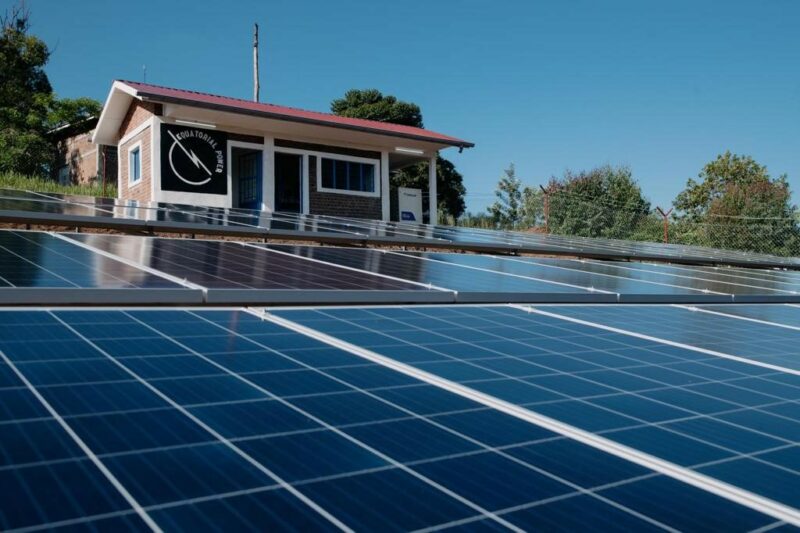A subsidiary of the Private Infrastructure Development Group (PIDG), InfraCo Africa, has signed a deal with Equatorial Power (EP) under Rwanda’s InfraCo. Equatorial will invest US$1.7 million in solar mini-grids to expand its avant-garde mini-grid concept in the Democratic Republic of the Congo (DRC) and Rwanda.
The tech firms will devise four new mini-grids and four agri-processing hubs (APHs) on Idjwi Island in the Democratic Republic of the Congo. These will be followed by four additional solar mini-grids and three additional APHs in southeast Rwanda. Smaller businesses will be able to get energy, which will help reach SDG 8 by creating direct and indirect jobs in the local supply chain.
The new small grids, which range in size from 60kW to 85kW, will include battery storage to handle erratic sunlight during the nation’s wet seasons. By 2023, the project is expected to connect more than 3,330 low-income customers in the DRC and 2,500 in Rwanda. This will give more than 35,000 people access to clean energy and help reach SDGs 7 and 13.
Read also: Shell Buys First Africa Based Solar Company, Daystar Power
Equatorial Power is a decentralized energy infrastructure enterprise that provides renewable power services to developing regions. EP owns and manages agri-processing hubs (APHs) that provide local communities with services like water filtration, cold storage, fish drying, and maize milling. These services generate an anchor load for the mini-grid and help the economy grow.
EP provides business incubation programs to promote renewable energy via appliance finance and skills training. Nabil Saimi, Head of Business Development for InfraCo Africa, said, “InfraCo Africa has a good track record of implementing mini-grid projects in sub-Saharan Africa, and we are excited to bring our knowledge to Rwanda and the DRC.”
We are dedicated to providing access to sustainable energy and are thrilled to support EP’s creative strategy to combine electricity availability with agri-processing and other critical economic development impulses.”
Mini-grids are increasing in Africa
During the COVID-19 epidemic, Africa’s mini-grid sector increased the number of people it connected to modern, dependable energy.
500,000 individuals, schools, and businesses in sub-Saharan Africa.
According to AMDA’s Benchmarking Africa’s Minigrids study. This is the only sectoral study that compares mini-grid use and income across numerous years.
AMDA used the research to ask governments and donors for more help for the mini-grid industry in Africa, which is strong right now but faces financial, economic, and regulatory limits.
Clean mini-grids for Africa
The industry is having trouble growing and delivering on its promise to speed up access to clean, cheap energy. This is especially true in the rural parts of the continent, where 600 million people still don’t have access to electricity, which is more than half the population.
Jessica Stephens, the CEO of AMDA, says that the mini-grid industry has the chance to create new, smart, and long-lasting energy infrastructure that helps local economies and communities grow. “Energy is the cornerstone of all of the SDGs, and as such, it requires the same level of government and donor support that conventional utilities have. This is a must if the industry is to reach its full potential and give hundreds of millions of people access to reliable infrastructure for renewable energy.




